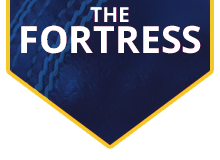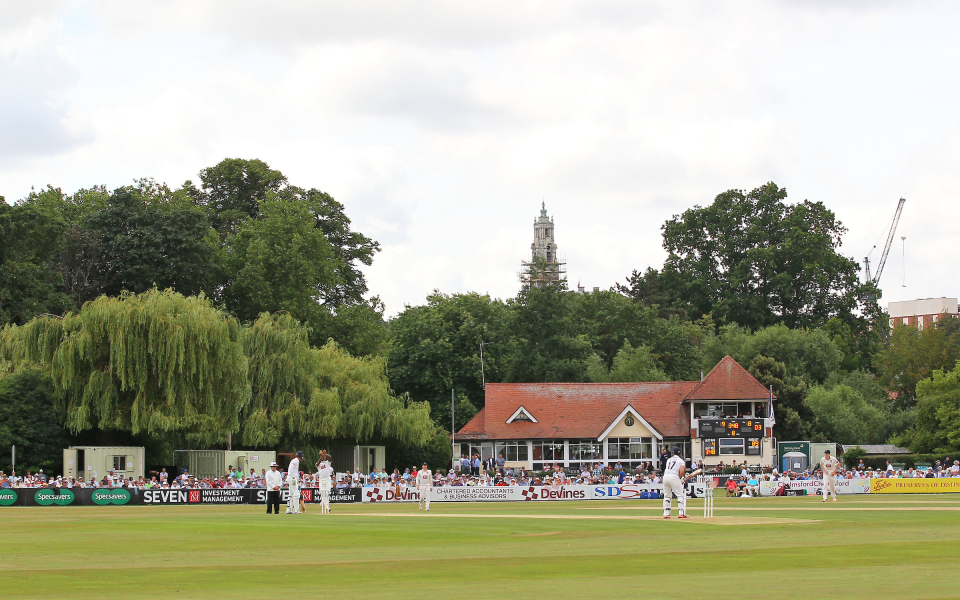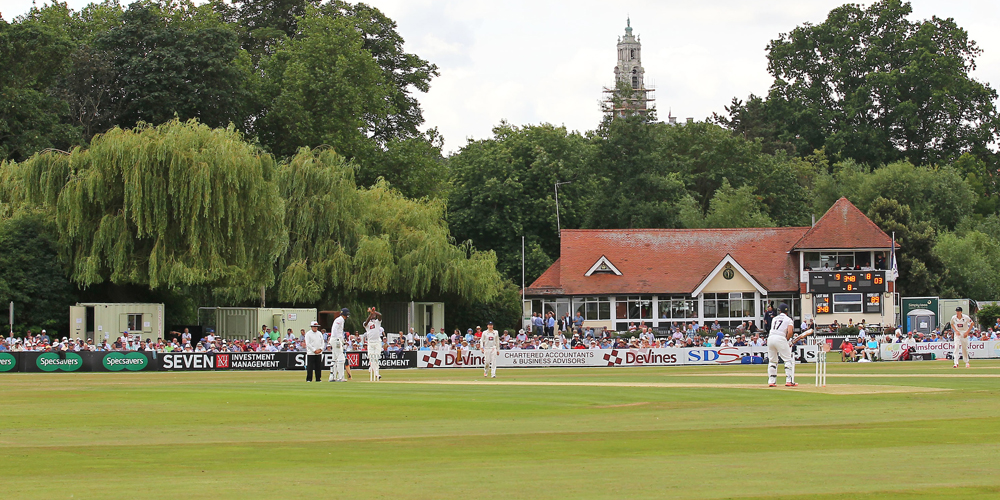
On the day that Colchester was awarded city status, it is an opportunity to look back at first-class cricket staged at the two venues in the north of the county, primarily the Castle Park Cricket Ground but also the Garrison ‘A’ Cricket Ground.
Lying to the north of the High Street, and below the level of the town and castle itself, the park is bordered by the remains of the Roman perimeter wall and the old Colchester by-pass. Colchester CC first opened the ground in 1908 and after returning from the war, Essex first staged their opening first-class game in 1914.
However, due to constant flooding of the River Colne, Essex had to move to the Garrison ‘A’ Ground in 1966 before returning in 1974 for regular cricket festivals. Usually taking place around August, festival cricket continued to be staged the venue until 2016. These festivals were suspended from 2017 due to a change in the ways in which fixtures are arranged by the England and Wales Cricket Board.
A total of 117 first-class matches were staged there with Essex victorious on 40 occasions.
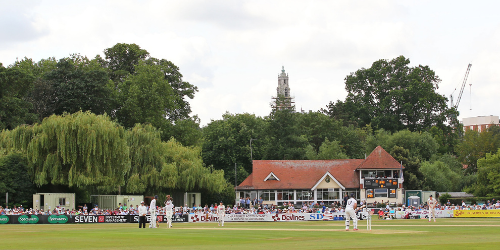
Colchester Castle Park in 2016
The first Essex fixture took place in 1914 and witnessed a winning start following a 193-run win against Worcestershire.
In a game which saw over a thousand runs, there wasn’t a single century scored in the match with Essex’s entire middle order of Percy Perrin, Frederick Fane, Johnny Douglas and Walter Turner all scoring 50s to set up a comfortable first win at Castle Park, as they bowled out Worcestershire twice for 214 and 216.
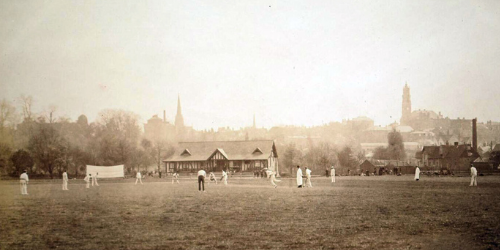
Colchester Castle Park in 1908
The dominance of Essex between 1979-1984 was also on show for the people of Colchester, in particular a nervy Championship fixture against Glamorgan in 1981.
The visitors held a first-innings lead of 87, before opening batters, Graham Gooch and Brian Hardie both scored 113 & 114* respectively. This was supported by Allan Lilley who struck 88 to give Essex a lead of 324 going into Glamorgan’s second innings.
However, 5-62 from the legendary John Lever left Javed Miandad stranded on 200* as Essex secured a 13-run win.
The highest first-class score ever hit in a first-class game at Castle Park is 662-7 in 1995, with three of the opening four batters hitting hundreds against Hampshire. Graham Gooch opened the scoring with 142, followed by Nasser Hussain who top-scored with 145 and 136 from the overseas star, Mark Waugh.
This was reinforced by Ronnie Irani and Robert Rollins who scored 78 & 85, respectively, putting Essex in the perfect position for a comfortable win by an innings and 254.
The only T20 game to be played by Essex in Colchester was in 2014 against Kent Spitfires. Essex Eagles didn’t get off to the greatest start losing both openers, Jesse Ryder and Mark Pettini departing within the first seven balls. However, this bought Tom Westley to the crease who would go on to score a century in what is his best-ever T20 campaign to date.
Westley scored his 105 off 58 balls, including 10 fours and 6 sixes. His innings helped to guide the Eagles to over 200, with the support of James Foster (36) and Ryan ten Doeschate (37). It was Jesse Ryder who starred with the ball, taking 5/27 with the Spitfires were bowled out for 146 to give Essex a 63-run victory.
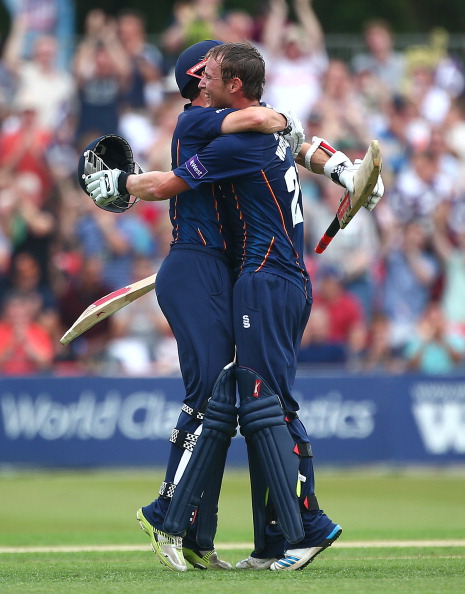
Westley celebrates reaching a century against Kent
The last Essex game played at Castle Park to date was in 2016, which turned out to be a momentous moment for Graham Napier. Napier, who is arguably Essex’s greatest player to come from Colchester, was playing in his final match at Castle Park following his impending retirement at the end of that season.
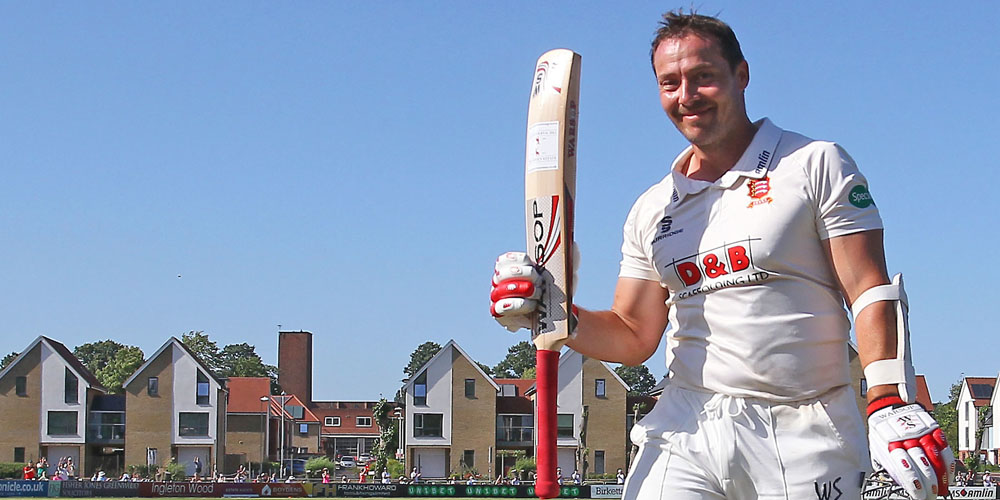
Graham Napier walking off after scoring 124
The Championship fixture ended in a draw but was overshadowed by Napier, who showed his brilliance one final time in festival cricket. Napier took 5-114 off 30 overs as Sussex were bowled out before scoring a beautiful century with the bat, which included 17 fours and 4 sixes, to top off his farewell.
Colchester Moments:
